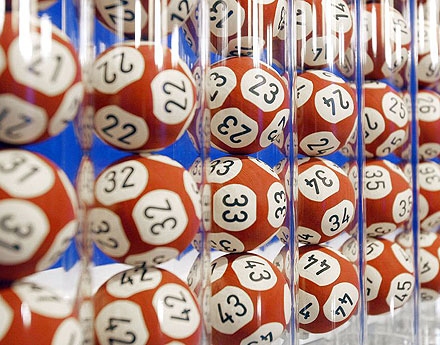The Hangman’s Lottery
A couple of weeks ago, a group of state employees took a man called Troy Davis from his prison cell in Atlanta, Georgia to a small room and strapped him to a gurney. They inserted a needle into one of his veins, hooked up the needle to some tubes connected to a machine and, at a given signal, pressed a button on the machine in the full and clear knowledge that it would cause poisonous chemicals to be pumped into his bloodstream until he died of asphyxiation.
These people – every one of whom doubtless considered themselves an ordinary, decent, caring member of society, living in the most civilised and cultured country on Earth – participated willingly in the killing despite knowing that there was an enormous degree of doubt as to whether Davis was in any way responsible for the death of the man in whose name he was being executed.
Bafflingly, very few people found this behaviour at all odd.
The story, while attracting more worldwide media attention than the dozens of less controversial executions carried out in the US every year, still barely merited more than a footnote on international news bulletins. Yet Davis' case is remarkable.
No physical evidence whatsoever linked him to the crime. He was convicted on the testimony of nine people, seven of whom later recanted their statements identifying him. Of the remaining two, one refused to speak of the case at all, and the other was the man many suspected of being the real murderer. (Several people claimed he had confessed it to them.)
None of that proves Davis was innocent, of course. But you'd think to most people it would – at the very least – fit any sensible definition of "reasonable doubt", and in the penal code of most civilised societies, reasonable doubt is enough to prevent someone being found guilty, let alone suffering the irreversible ultimate sanction. Fairly astonishingly, even the hang-'em-and-flog-'em readers of the Daily Mail – by a margin of 3 to 1 – disapproved of Davis' execution.
Yet the people of the USA still overwhelmingly support the death penalty. When Rick Perry, a man with a real chance of being the next President, appeared at a recent Republican candidates' debate in California – hardly the most redneck of US states – the audience broke into spontaneous applause at the mere mention of the 234 executions he's ordered as Governor of Texas, many of them in circumstances almost as shrouded in uncertainty as Davis's.
And they're not alone. Support for execution runs at between 60% and 80% in Japan (which still hangs prisoners fairly regularly), and even in Britain – where the state hasn't carried out the death penalty in 40 years, and finally abolished even the theoretical possibility of its imposition in 1998 – most polls show that while support for capital punishment is falling, a majority would still bring back the noose if a referendum were to be held on the subject.
(These, of course, are three of the world's most supposedly enlightened and modern nations. More primitive peoples all over the planet can't even begin to imagine why you wouldn't want to execute your criminals, and for far less than murder to boot.)
But you pretty much know all this, so let's see if we can't inject a small vialful of surprise into the veins of proceedings. I have no problem with the death penalty. If you deliberately kill someone, with malice aforethought, I don't see why you shouldn't forfeit your own life in return. After all, it's not like your victim is going to be released from being dead after a few years of good behaviour in their grave, is it?
It's not about deterrence, because the evidence against it being a deterrent is pretty conclusive. And I entirely accept that murderers can, in many cases, be rehabilitated and turned back into productive members of society. But why bother? It takes years of work and huge amounts of money, which could be better spent on people in need who haven't murdered anyone. Do we want to send the message that you can jump the queue for a social worker with a quick bit of homicide? And why take the risk that you haven't done the job properly, and that they'll kill again after all?
I mean, what are we, short of humans all of a sudden? We can easily afford to trim out a few of the the nastier ones.
Because the thing with putting murderers in jail is that you have to either let them out, or not let them out. The average convicted murderer in the UK serves just 14 years of their "life sentence" before being released. That means they get to live about 80% of their natural adult life in freedom, despite having deliberately deprived someone else of all of theirs and condemned that person's loved ones to lifelong misery. Is that justice? Is that fair? I don't think so.
But alternatively, if you're going to keep them locked up with no hope of release until they die, what's the point? Why go to all the trouble and expense if you're saying there can be no possibility of redemption? You may as well just get it over and done with.
No, the problem with the death penalty isn't that it's barbaric or uncivilised or unjust, because in and of itself, in principle, it's none of those things. None of those issues are inherent or insurmountable. The problem with it is that it's only any good until the day you execute someone who didn't do it. On that day, and forever afterwards, the state and the people have surrendered any moral right to put murderers to death, because from that day on we're all murderers. A single Derek Bentley is one too many, because only the innocent have the right to be executioners.
So how do we square this tricky moral circle? Well, like most things it's pretty simple if you're prepared to adopt a radical and rational solution. Every nation on Earth should hand over the decision on capital punishment to a referendum of its electorate. There should be a free vote, on any and all aspects of the issue right down to the method used and whether the condemned gets a last meal or not. But there's a small twist.
Supporters of the death penalty argue – either directly and openly or by unavoidable implication – that a few mistaken executions are a price worth paying, either for the (alleged) deterrent effect or the principle of judicial vengeance. So the only reasonable thing to do is to make them face up to the reality of that situation, and to do that in the only meaningful way possible.
The names of everyone who votes "Yes" to retaining/restoring capital punishment must be recorded and entered into a lottery. On the first of every month, one name (or more, determined as a proportion of how many people that nation or state executes in a typical year) will be drawn at random and executed on the last day of that month by the nation/state's chosen method, with no exceptions or appeals.
After all, if you're willing to accept the state killing of innocents, you have to accept that one day it might be you (or your son or your daughter or father or mother or brother or sister) who is the innocent in question. Because everyone who's ever been wrongfully executed was someone's son or someone's daughter, and why should you be magically exempt? If the random sacrifice of the innocent is a price worth paying to kill murderers, you must be prepared to pay it yourself.
It's hard to imagine any referendum held under such rules returning a "Yes" vote. (Though sadly not quite impossible, the way the US is going.) And yet, that's what any country with a death penalty already does – it's just that advocates of capital punishment currently don't have to confront the fact. Perhaps being forced to actively put an "X" in a box that could be the signing of your own death warrant is what we need to develop some perspective. Who's with me?













I suggested something similar but less radical. We re-introduce it as an opt-in system. All those in favour register, and if they're convicted of a capital crime, they can be put to death. Those that don't vote in favour can't be.
Given the huge amount of support for the death penalty (over 50% in the UK) we'd get a lot of sign-ups and because it's such a great deterrent then over the next five years we'll see a huge decline in crime rates, after which we could consider rolling it out as a compulsory system. Or maybe they won't change at all and we won't.
Not quite as neat as your idea, but it's a similar concept – if you think it's a good idea, you go first.
Sounds good to me. This is pretty close to the bone for me since I'm currently living in the city where the murder in question took place.
Reminds me of the plot of an Isaac Asimov short story – The Winnowing.
http://en.wikipedia.org/wiki/The_Winnowing
@daneel: Is it a coincidence that you are reminded of an Asimov story, and that your handle is daneel?
If you're going to have the death penalty then the people responsible for handing out the sentence should be prepared to put their own lives on the line.
Would Rick Perry and the judge who presided over that joke of a trial had been as quick to convict if they could be tried for murder should it later arise that evidence was ignored and there was reasonable doubt, or even they were proven completely innocent? Perhaps they would take a little more care when ruling on someone's life.
It's an interesting idea, but the problem is that if you set the stakes of a lottery that high, then you're going to drastically limit the number of players, and you'll end up with a system where the only people who would play would be those who personally know the victim, or the accused. It turns into a popularity contest, a high stakes Am I Hot Or Not.
IN STARK CONTRAST TO THE CURRENT ITALIAN JUSTICE SYSTEM. (satire)
Far better to settle the issue with a betting market. Rather than have a boring judge and a tedious jury of so called peers, just publish all of the evidence online, and then open a market on Betfair. Set a minimum amount of money that has to be wagered before a verdict can be reached (to prevent someone just buying the result), and then let the market decide when a defendant's guilt – or innocence – has been proved beyond reasonable doubt, which will have happened when the odds on a guilty verdict reach 1-1000 (frying time) or 1000-1.
To be serious for one moment, this is, in many ways, a fucking terrifying idea, and if it were seriously proposed by a Government, I would be repulsed. On the other hand, I'm pretty sure that if it were properly administered, it would deliver less miscarriages of justice than the current system.
Um.
Oh, wait, I misread that one key bit about it being a referendum on the death penalty in general, rather than for each specific case. I must have glossed over that in my excitement about my new, improved justice system, which I'm calling Justice Plus.
If you deliberately kill someone
Questions arise from this.
What if you deliberately killed someone in self defense?
What if you deliberately killed someone in a botched suicide pact?
What if you deliberately killed someone as a result of metal illness?
What if you deliberately killed someone trying to defend yourself but it turned out to be someone trying to rescue you?
Also,murder attracts a mandatory life sentence.Even after release, the person is out on licence, so even sneezing in the wrong fashion ends up with them straight back inside, post haste.
I think a measure of our society is the fact we don't execute prisoners, we're too civilised for that. And I'd rather live in a civilised society with some malcontents wanting retribution than a society where they have the say.
You don't understand, Stu. You are blind, Stu.
You see, Stu (but you don't! You are blind) that your lottery idea is VAIN HUMAN MEDDLING, much like Obama's dreaded "Death Panels". Whereas the current, beautiful US system is perfect.
If a murderer deserves to die, the jury will – in their hearts – be swayed by God to deliver the right verdict. (Note: Exodus, within which we find God "hardening the Pharoah's heart" (Exo 11:10 NIV) Moses and Aaron performed all these wonders before Pharaoh, but the LORD hardened Pharaoh's heart, and he would not let the Israelites go out of his country)).
God clearly meant this man to die, albeit after many years of torturous waiting for the sentence. This is because his sins were so grievous; in this instance, he clearly and with malice aforethought was not a white man. The current American justice system is much like trial by ordeal, except that was bad and this is good. Let God decide.
"What if you deliberately killed someone in self defense?"
Self-protection is already a valid defence against a charge of murder.
"What if you deliberately killed someone in a botched suicide pact?"
Then you'd have been badly misunderstanding the concept of "suicide".
"What if you deliberately killed someone as a result of metal illness?"
Then it would be Iron Maiden's fault.
"What if you deliberately killed someone trying to defend yourself but it turned out to be someone trying to rescue you?"
See above. There already exist mechanisms for dealing with situations like these, eg charging someone with manslaughter rather than murder in certain circumstances. Diminished responsibility (eg being loopy) is also a valid defence.
I've just checked up on trial by ordeal to support my satirical suggestion that it is somehow equivalent to the unfair American justice system.
I've come across this: In Anglo-Saxon law, corsned, also known as the accursed or sacred morsel… was a type of trial by ordeal consisting in the eating of a piece of barley bread and cheese…
Those PC liberals in the middle ages, giving criminals food as 'punishment'. An appalling state of affairs that will clearly lead to immigrants, young people, and Labour politicians reducing the value of my home.
Gotcha. I somehow misread, and thought you were wanting to alter the legal mechanics of murder, rather than up the sentence from statutory life to capital. As you were,. Carry on, Sergeant.
It's a tricky subject, the death penalty. I'm not broadly in favour, however I believe there is a certain category of crime, where the evidence is not in doubt, it should be an option. Take Anders Breveik, for example.
"Who's with me?"
Seems fair to me.
I wouldn't trust the state or any system to manage such responsibilities. They cock up so much on every level with great regularity that absolute power and trust shouldn't be on anyone's mind when it comes to these things.
I wonder how you would react to a pro-life blog proposing the same idea, i.e. a referendum on the abortion issue, followed by random “late-term abortions” for everyone voting pro-choice.
Make pro-choicers suffer the consequences of their policy, yes?
Exactly what we need to “develop some perspective”, the pro-lifers would say. At least Mr Davis got a jury trial and 20 years of appeals before the state sanctioned his death.
I would react in the same way I already do to the so-called “pro-life” movement, which is to dismiss them with contempt as the ignorant, vicious fucking idiots they are. Odd how the US is the biggest supporter of both the death penalty and forcing people to have unwanted children statistically more likely to grow up into murderers, isn’t it?
I’m rather disappointed to see that, in spite of thinking yourself an expert on the matter of capital punishment, you have apparently not previously considered the objection that official policy causes innocent deaths all the time.
This is a problem for you, because it is inconsistent to support one policy that causes innocent death (e.g. legal abortion) while also attacking another for the same reason (i.e. capital punishment).
If you were to attack capital punishment on some other grounds, then this objection would not be valid. But you have dedicated an entire article to it.
It is all very well to hide behind ad hominems (“ignorant, vicious fucking idiots”), but these answer no objection at all, and merely reveal your arrogance and contempt for anyone not sharing your own views. And you would almost certainly find that some pro-lifers would be amongst the greatest supporters of your Hangman’s Lottery… if it were followed by their Abortionist’s Lottery. Your argument is their argument, too.
"it is inconsistent to support one policy that causes innocent death"
As Judge Death so aptly and thoughtfully put it,"You cannot kill what does not live." A foetus is not a person, and is no more "alive" than a cancerous tumour.
“merely reveal your arrogance and contempt for anyone not sharing your own views”
Uh, I might use a few rude words now and again, but at least I don’t go around murdering doctors.
I wonder how you would react to a pro-life blog proposing the same idea, i.e. a referendum on the abortion issue, followed by random “late-term abortions” for everyone voting pro-choice.
Not equivalent. Abortions are not haphazardly carried out on innocent people just for the sake of being tough on crime. Parents being able to choose 'abortions' up to the age of, say, 18 would be equivalent – but if people took that up, it would tell us more about the parents than abortions.
I'd like to point out a quirk about pro-life arguments in our medically wondrous age. I fully accept that it is squicky to kill an organism that can develop into something recognisably human being unaided, as there is a strong argument that this potential makes it human already. What about when it can develop into a human with artificial wombs? If we say that a foetus X weeks after conception can, outside of the body, be mechanically aided into growing into a baby, that does not make it human. I can theoretically take any cell in your body and develop it into a clone of you, as a baby, in the lab. Therefore you have the ridiculous duty to protect every single DNA sequence in your body as it is 'potentially a viable person'.
And don't get me started about your body recycling sperm cells. That is testicular genocide.
Labs have already managed to use DNA from cells other than sperm to fertilise an egg. There has also already been strides towards artificial wombs in the lab too. Tom's scenario is probably not far off, probably within our lifetimes. It is an interesting counter argument.
As you typed that masturbatory puff-piece of baby hatred, your fingers contacted harshly with your keyboard and flakes of skin were lost therein.
Are you going to get a vacuum cleaner and carefully separate your (potential) innocent human children from the mere bits of food waste and fag ash spillage?
No, you are not.
I am calling the police.